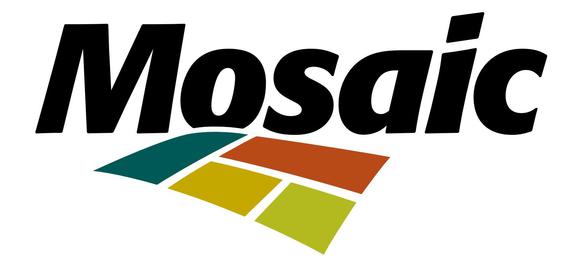The world is embarking on a new agricultural age. Due to soaring global populations, particularly in the under-developed world, combined with rising standards of living in those parts of the world, we are in the midst of an unprecedented strain on food production. In response, farmers around the globe will have to rapidly increase crop yields to meet the demand.
As a result, the companies that provide supplies to farmers have an undeniable economic tailwind that should serve them well. Crop nutrient producer Mosaic (MOS 0.87%) is a company that will reap the benefits of rising populations and rapidly developing economies.

Intense food demand in the near future
According to Mosaic's 2013 annual report, management reports the global population recently surpassed seven billion and should hit nine billion by 2050. That represents growth of about 75 million people per year. Obviously, such strong population growth will mean greater demand for food.
Compounding the growing demand for food is that along with rising populations, standards of living are improving as well. Diets across the world are increasingly turning toward grain-based sources, and proteins. As living conditions improve, there will be millions of new middle-class entrants in the coming years.
In fact, Mosaic estimates that in order to meet the demand, farmers will have to grow as much food over the next 50 years as they have over the entire course of human history. That's where Mosaic comes in. It along with industry peers PotashCorp. (POT +0.00%) and CF Industries (CF 3.13%) have bright long-term outlooks despite some near-term weakness.
Don't be dissuaded by short-term pressure
Mosaic and PotashCorp were both victimized by forces beyond their control last year. In 2013, the breakup of a major fertilizer partnership between Russian fertilizer producer Uralkali and Belaruskali caused potash prices to plummet. Of course, it's worth noting that fertilizer producers posted disappointing profits last year. Mosaic's and PotashCorp's earnings fell by 42% and 14%, respectively, which management teams of both companies attribute specifically to the fallout in potash and phosphate fertilizer prices.
Going forward, underlying business conditions are expected to remain difficult in the aftermath of the industry turmoil. Neither company is expecting a strong recovery this year in terms of sales and profits, but Mosaic is fully continuing with its strategic vision. That's why Foolish investors should look to the future.
Positive long-term catalysts
Since it goes without saying that the amount of land available for food production won't change any time soon, increasing production from existing farmland becomes critical. That's precisely why the mission to increase crop yields will be directly beneficial to fertilizer producers. Mosaic notes that fertilizer accounts for 60% of crop yields.
Mosaic is firmly intent on growing its business, which is why it purchased the phosphate business from CF Industries last year for $1.4 billion. And, Mosaic is expanding into the emerging markets. It recently opened a new plant in Brazil which will be able to process 300,000 metric tons of fertilizer per year.
Other actions taken to penetrate under-developed economies include Mosaic's recent joint venture in Saudi Arabia. Mosaic will develop a 3.5 million-tonne phosphate mine with a 25% ownership interest, designed specifically to improve logistical access to India, a key emerging market opportunity. This represents significant potential, since global phosphate shipments totaled 63 million-tonnes in 2013.
The Foolish bottom line
There's no doubt that the upheaval of the global fertilizer market had an adverse impact on Mosaic, as well as PotashCorp. and CF Industries last year. And, this year is expected to be difficult as well due to lingering effects from the breakup of a major potash partnership. However, focusing entirely on this would be short-sighted.
The long-term underlying economics of the agriculture industry are extremely favorable, due to soaring global populations and rising standards of living across the world. The immense demand on food production means existing farmland needs to become more productive. That farmland obviously needs nutrients, which means Mosaic has a bright future ahead.
Long term trends, like the need for more food, are worth investing in